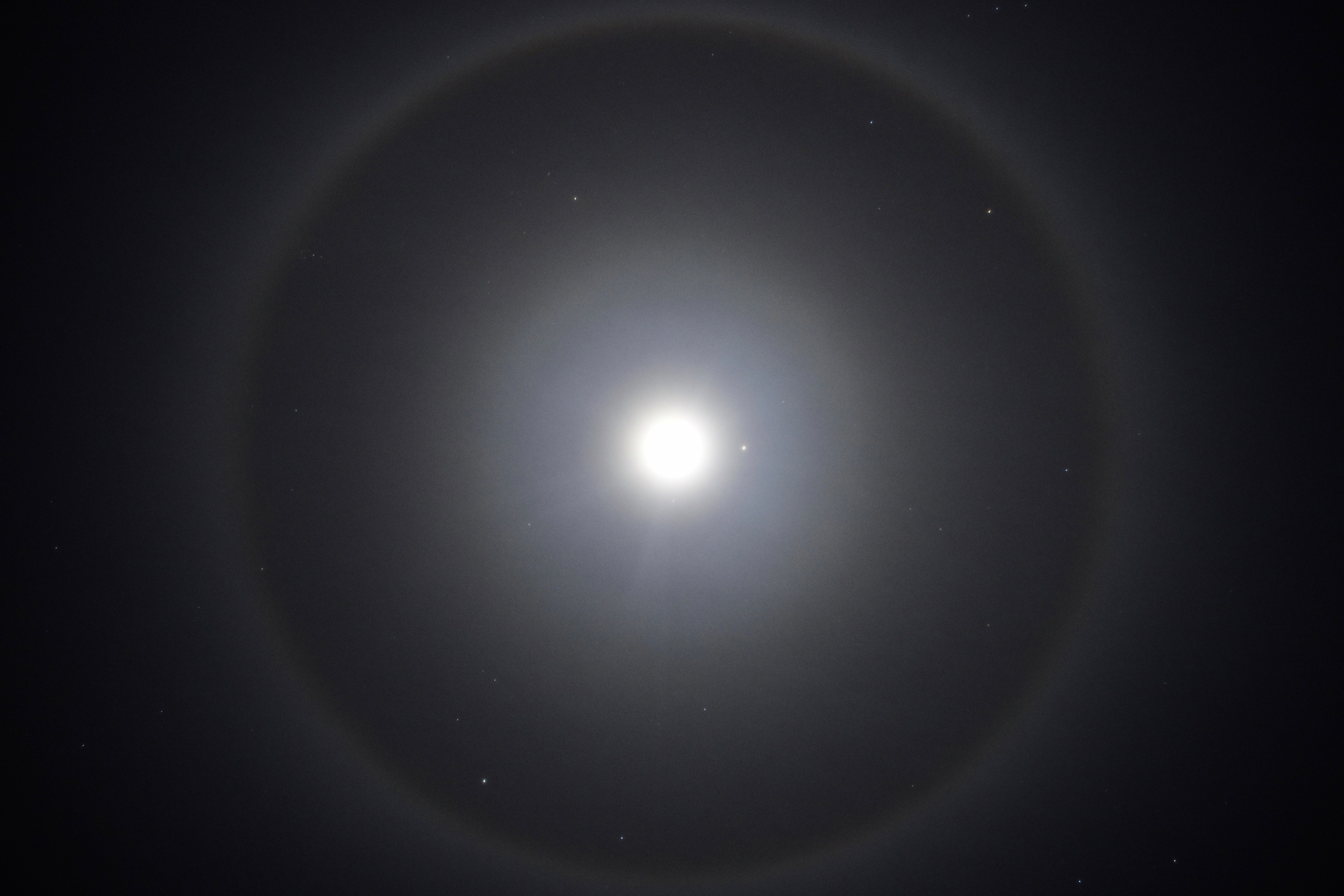22 degrees
When atmospheric conditions are just right, the moon provides a bit of magic.
Hexagonal ice crystals redirect light rays, creating a powerful ring of light called a 22 degree lunar halo. The occurrence is named as such because of the 22° angle formed by the moon, the viewer’s eye, and the perimeter of the ring.
The same ring can appear around the sun with a more colorful display, but the lunar halo's contrast with a dark night sky proves to be more encapsulating.
22 degrees
When atmospheric conditions are just right, the moon provides a bit of magic.
Hexagonal ice crystals redirect light rays, creating a powerful ring of light called a 22 degree lunar halo. The occurrence is named as such because of the 22° angle formed by the moon, the viewer’s eye, and the perimeter of the ring.
The same ring can appear around the sun with a more colorful display, but the lunar halo's contrast with a dark night sky proves to be more encapsulating.
